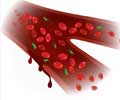Sepsis is the leading cause of death all around the world; world sepsis day is held on 13th September of every year to unite in the fight against sepsis.
Highlights:
- World sepsis day is held on 13th September every year to increase awareness on sepsis and also help reduce the worldwide burden of sepsis.
- Annually, sepsis accounts for at least 8 million deaths worldwide and is the number one preventable cause of death.
- World sepsis day provides an opportunity to spread awareness and prevention measures in the community.
- This year, World Health Organization and Global Sepsis Alliance are conducting a free online congress with spotlight on maternal and neonatal sepsis.
What is Sepsis?
Sepsis is the body’s extreme response to an infection. It is a life-threatening condition and without timely treatment, sepsis can rapidly cause tissue damage, organ failure, and eventually death. Sepsis happens when an infection you already have in the body triggers a chain reaction throughout your body.Causes
Infections that are most closely linked to sepsis:- Urinary tract
- Skin
- Gut
- Pneumonia
- Most are caused by bacterial infections but may also be caused due to fungal or viral infections
- Staphylococcus aureus
- Escherichia coli
Risk Factors
Anyone with an infection has a risk of sepsis but the risk is more prominent in certain individuals and age groups:- Children and adults above the age of 65
- Individuals with a weak immune system
- Individuals with wounds and burns
- Individuals who already have invasive devices in their bodies; for example catheters or breathing tubes
- Individuals with chronic medical conditions like diabetes or kidney disease
Symptoms
These symptoms, if observed after infection may be indicative of sepsis:- Abdominal pain
- Fever
- Shortness of breath
- Dizziness
- Low urine output
Prevention:
“Preventing infections is the best way to prevent sepsis”
- Vaccination against pathogens
- Avoid indiscriminate use of antibiotics
- Maintain hygiene
- Early detection
World Sepsis Day and its Mission
It is an initiative by the Global Sepsis Alliance (GSA) and was established in the year 2012. GSA is a not-for-profit organization with a mission to provide global leadership to reduce the worldwide burden of sepsis. The aim of GSA has been to raise awareness for sepsis worldwide and reduce sepsis deaths by 20 % by 2020.How can you Contribute?
- Set up public events: Information pamphlets, stalls, creative baking events, pink picnics, and sport events like marathon.
- Training in Hospitals: Awareness stalls for hospital staff and sepsis training programs.
This year, the WHO and GSA are conducting a WSC Spotlight congress. This is a free online program where about 25 experts in the field share their opinions. This time around the topic is Maternal and Neonatal Sepsis.
What is Maternal and Neonatal Sepsis?
The risk of sepsis is drastically high in pregnant women and neonates. If sepsis develops during pregnancy, while giving birth or after abortion, it is called maternal sepsis. Sepsis is one of the main causes of maternal death. 35,000 women die every year due to maternal sepsis complications.Neonates are usually referred to babies that are less than four weeks old. Since they still do not have a well-developed immune system, the risk of infection is very high.
Here is an opportunity to fight for human life and well-being.
References:
- Sepsis - (https://www.world-sepsis-day.org/)
- Sepsis - Symptoms and causes - (http://www.mayoclinic.org/diseases-conditions/sepsis/symptoms-causes/dxc-20169787)
Source-Medindia









